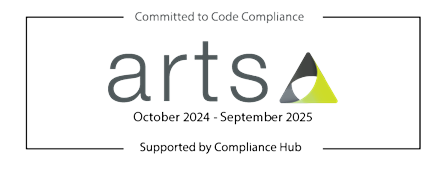Understanding Ramadan: A time for reflection, fasting, and community
)
What is fasting in Ramadan?
Fasting, known as sawm in Arabic, is one of the Five Pillars of Islam. Between Suhoor (the pre-dawn meal) and Iftar (the evening meal), Muslims abstain from food, drink, smoking, and other physical needs. You may have heard these terms from your friends, colleagues, or family members who observe Ramadan. The fast is broken each evening with Iftar, while Suhoor provides essential nourishment for the day ahead.
Why do Muslims observe Ramadan?
Muslims observe Ramadan as a sacred month in Islam, marking the revelation of the Quran to the Prophet Muhammad (PBUH). It is a time of reflection, devotion, and self-discipline, encouraging empathy for those less fortunate. Fasting serves as a reminder of life’s blessings and encourages kindness and charity.
Nourishment and fasting
Fasting for long hours can be physically demanding, making it important to maintain a balanced and nutritious diet during Suhoor and Iftar. A well-planned meal helps sustain energy levels throughout the day and supports overall wellbeing.
| Eat a wholesome Suhoor: Include slow-releasing carbohydrates like oats, whole grains, and proteins such as eggs and yogurt to keep you fuller for longer. |
| Stay hydrated: Drink plenty of water between Iftar and Suhoor to prevent dehydration. Avoid caffeine, as it can lead to dehydration. |
| Break your fast wisely: Start with dates and water, following the tradition of Prophet Muhammad (PBUH), then opt for a balanced meal with lean proteins, healthy fats, and fibre-rich foods. |
| Avoid overeating: It’s tempting to indulge after a long day of fasting, but eating heavy, fried, or sugary foods can lead to sluggishness and discomfort. Moderation is key. |
| Engage in light activity: Gentle movement like walking or stretching can help with digestion and overall well-being. |
How you can support your Colleagues during Ramadan
If you work with colleagues who are observing Ramadan, there are simple yet meaningful ways to show your support and understanding.
| Be mindful of fasting hours: Avoid scheduling lunch meetings or team events centred around food during the day. |
| Respect prayer times: Practicing Muslims may take short breaks for prayers throughout the day. Allow flexibility where possible. |
| Adjust workload if needed: Energy levels may dip during fasting hours, especially in the afternoon. Offering support or adjusting deadlines, when possible, can be helpful. |
| Show understanding: Fasting can be physically challenging, so be mindful that your colleagues might feel more tired than usual. A little empathy goes a long way. |
| Educate yourself on fasting: Learn about what fasting involves, including that Muslims do not eat or drink anything from dawn to sunset and avoid making comments about food, hunger. |
| Avoid assumptions: Not all Muslims fast due to health or personal reasons. Be respectful without making assumptions about someone’s observance. |
| Join in the celebrations: Ramadan ends with Eid al-Fitr, a celebration. Wishing your colleagues “Eid Mubarak” is a great way to acknowledge and celebrate their observance. |
Whether you observe Ramadan or are simply learning about it, understanding its significance and showing support can foster inclusivity and respect. A nutritious diet can help sustain those who are fasting, while awareness and thoughtful gestures from others can make the experience easier.
🌙 Ramadan Mubarak to all those observing! Wishing you a peaceful and blessed month.



